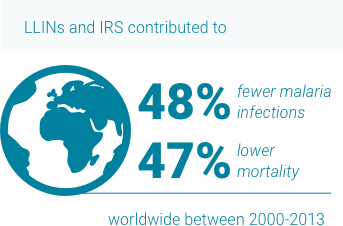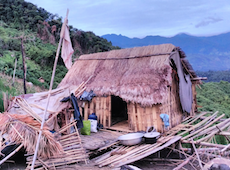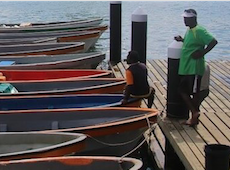
Ongoing Malaria Transmission
Investigating the Magnitude and Causes of Ongoing Malaria Transmission in Selected Settings
Background
Ongoing malaria transmission is the transmission of malaria that persists even after core malaria measures have been implemented.
These measures include:

When implemented well, these interventions are highly effective against susceptible malaria vectors. LLINs and IRS contributed to a 48% reduction in malaria infection prevalence and 47% reduction in mortality worldwide between 2000 and 2013.

The challenge
Malaria transmission can persist even when LLINs and/or IRS are effectively implemented and malaria vectors are susceptible to the insecticides used. This may be due to a combination of mosquito and human behaviours, such as:

Mosquitoes feeding before people go to bed and after waking up

Human activity away from protected houses and LLINs

Mosquitoes feeding outdoors
A clearer understanding of the magnitude of ongoing malaria will help to develop and optimize tools and strategies to address ongoing malaria in low- to high-transmission areas.
Programme aims and objectives
The important questions that the research aimed to answer:
What is the contribution of ongoing transmission to the overall burden
What are the causes of the ongoing malaria transmission?
To evaluate potential vector control options, it is critical to ascertain whether ongoing malaria transmission arises due to:

Mosquito resting and feeding behaviour (indoors vs. outdoors)

Mosquito biting behaviour (early morning vs early evening)

Feeding preferences (humans, domestic or wild animals)

Interactions with human behaviour (habits, occupations & living places)
These studies will form the baseline scientific evidence for larger projects on more specific topics, including the impact of new vector control tools.
The objectives of the research programme:
Produce updated data on the magnitude of ongoing malaria in low- to high-malaria transmission settings.
Produce scientific evidence of entomological, social and environmental causes of ongoing malaria.
The projects
Five research projects were selected and supported to provide the baseline evidence of ongoing malaria in selected settings.

Understanding sustainable malaria control and enhancement of elimination efforts in Africa (study sites in Kenya, Cameroon and Ethiopia)

Greater Mekong Subregion (GMS) - Studies to examine magnitude and identify causes (study sites in Thailand and Vietnam)

Puntos calientes de malaria residual en Perú y Brasil: estableciendo el marco para evaluar intervenciones mejoradas (Ongoing malaria hotspots in Peru and Brazil: setting the stage for testing improved interventions)

Investigating magnitude and drivers of persistent Plasmodium infections in East and West Africa (study sites in Burkina Faso and Tanzania)

Understanding human, parasite, vector and environmental interactions in Papua New Guinea
Support
This work is financially and technically supported by TDR, the Special Programme for Research and Training in Tropical Diseases. Technical support is also provided by the World Health Organization Global Malaria Programme. UK Aid also provides financial support.
Additional technical collaborators involved in the studies are indicated on the partners page.

